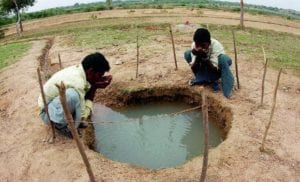Civilisation is rapidly draining some of its largest groundwater basins, and there is little to no accurate data about how much water remains in them.
This is according to two new studies led by University of California Irvine (UCI) using data from NASA Gravity Recovery and Climate Experiment satellites. The result is that significant segments of Earth’s population are consuming groundwater quickly without knowing when it might run out, the researchers conclude. The findings appeared this week in Water Resources Research. “Available physical and chemical measurements are simply insufficient,” says UCI professor and principal investigator Jay Famiglietti, who is also the senior water scientist at NASA’s Jet Propulsion Laboratory. “Given how quickly we are consuming the world’s groundwater reserves, we need a coordinated global effort to determine how much is left.” The studies are the first to characterise groundwater losses via data from space, using readings generated by NASA’s twin GRACE satellites that measure dips and bumps in Earth’s gravity, which is affected by the weight of water.Overstressed aquifers
For the first paper, researchers examined the planet’s 37 largest aquifers between 2003 and 2013. The eight worst off were classified as overstressed, with nearly no natural replenishment to offset usage.Another five aquifers were found, in descending order, to be extremely or highly stressed, depending upon the level of replenishment in each — still in trouble but with some water flowing back into them.
The most overburdened are in the world’s driest areas, which draw heavily on underground water. Climate change and population growth are expected to intensify the problem.







